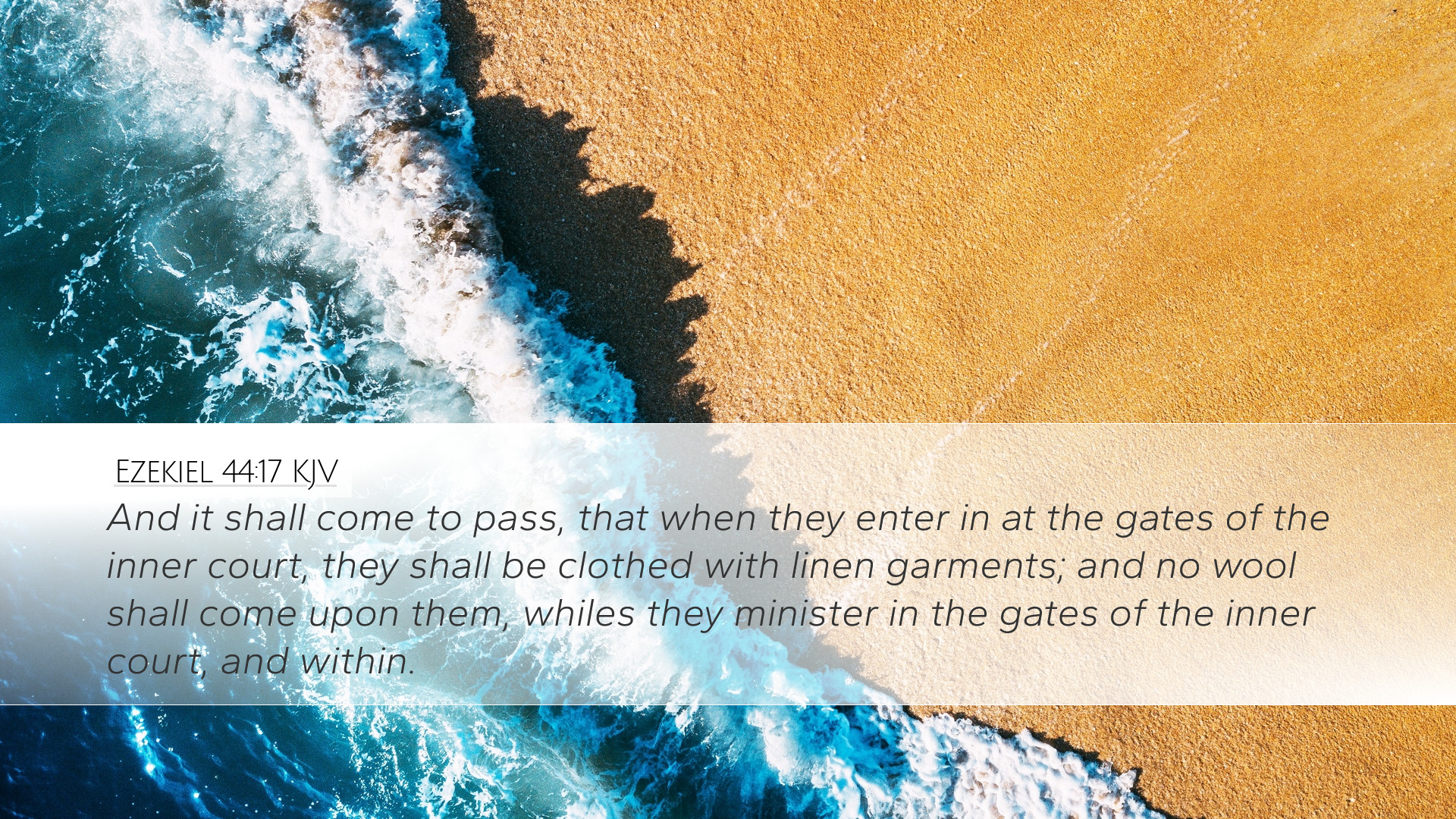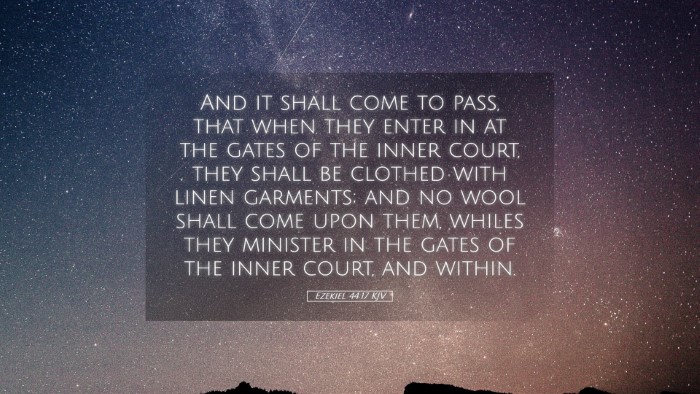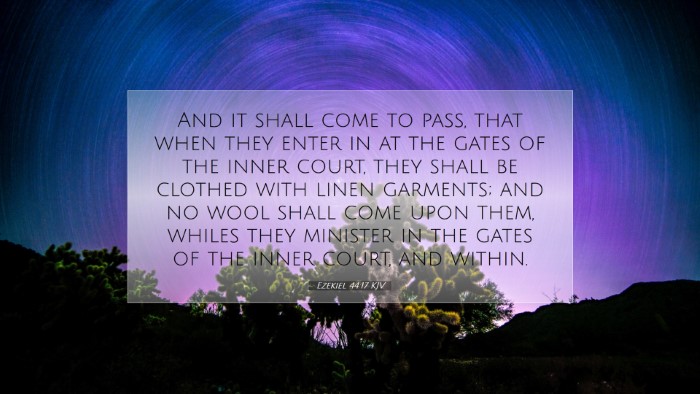Ezekiel 44:17 - Commentary and Insights
Bible Verse: "And it shall come to pass, that when they enter in at the gates of the inner court, they shall be clothed with linen garments; and no wool shall come upon them, whiles they minister in the gates of the inner court, and within." (Ezekiel 44:17)
Contextual Overview
This verse is situated within a broader context where Ezekiel receives a vision concerning the restored temple and the worship practices associated with it. Throughout chapters 40-48, Ezekiel details the measurements, regulations, and roles assigned to the priests and Levites in this future temple. This passage emphasizes the holiness required in the service of God, particularly underscoring the conditions that the priests must meet as they approach sacred spaces.
Significance of Garments
Matthew Henry notes that the peculiar attire of the priests — specifically, linen garments — represents purity and separation from earthly concerns. Linen, being a light and breathable fabric, symbolizes the righteousness and holiness of God. The prohibition against wearing wool reflects an understanding that there are conditions to be maintained in approaching the divine presence. It serves as an outward manifestation of the inward purity expected of those who serve in the Lord's house.
Albert Barnes elaborates on the functional significance of the priest's attire. The linen garments are not just ceremonial but also practical. Priests must function with clarity and readiness, especially during worship or sacrificial duties. Wool is often associated with warmth and earthly comfort, which might detract from the seriousness of their ministerial duties. By donning linen, the priests are to maintain a continuous posture of reverence.
Holiness in Ministry
Ezekiel's detailed regulations emphasize the seriousness of holiness in ministerial service. Adam Clarke expresses how the prescribed dress embodies the principle that those who approach God must do so with a clear understanding of sacredness. The notion of "no wool" serves to remind both the clergy and the laity that certain distractions and considerations must be set aside when engaging in divine duties.
Theological Implications
The implications of this verse extend beyond ancient Israel into contemporary ministry contexts. Pastors and church leaders are called to examine their own attire and the broader implications of their ministries. The standards for priests in ancient Israel can serve as a model for biblical standards of behavior and appearance in today’s church settings.
- Righteousness in Conduct: The linen garments signify that those who serve God must embody purity and integrity.
- Preparedness for Worship: The notion of being properly attired suggests that believers should prepare themselves spiritually and physically when approaching God.
- Separation from Worldly Ways: Rejecting wool symbolizes a departure from secular distractions in favor of a singular focus on divine service.
Application for Today's Church
In light of Ezekiel 44:17, church leaders, scholars, and students of Scripture are encouraged to reflect on how this passage can guide their understanding of holiness in worship settings. The emphasis on proper attire and conduct reminds believers of the weight of their calling.
Pastoral Reflection: Pastors and church leaders must model a lifestyle that reflects the holiness of God. This includes attire but extends to the integrity of character and the purity of purpose.
Student of Scripture: For those studying theology, consider how this passage illustrates the principle of holiness as it pertains to ministry. Comprehensive understanding of Old Testament law can enrich one’s grasp of New Testament grace, demonstrating that while grace is unmerited favor, the call to holiness remains significant.
Conclusion
Ezekiel 44:17 serves as a poignant reminder of the standards that God expects from those who minister in His name. The interplay of attire, conduct, and the seriousness of worship reminds all believers of the distinct nature of serving God and the reverence that accompanies it. As we engage with these concepts, may we strive for holiness in all aspects of our lives, especially in our service to the Lord.


